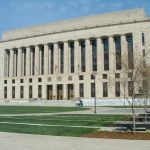About Preliminary Hearings: What is "Probable Cause"?
Probable cause is the threshold for criminal prosecution. Request a ConsultationWhat is Probable Cause?
Probable cause means there is enough evidence to cause a reasonable belief that a crime was committed and that the defendant committed it.
Probable cause is a concept that is important in several aspects of criminal law. This post deals with probable cause in the context of a preliminary hearing in Tennessee.
In order for a case to be bound over to the Grand Jury, the District Attorney must present enough evidence in the preliminary hearing to show probable cause. This means that there must be enough evidence to create a reasonable belief that a crime has been committed and that the defendant committed the crime. (This is a much lower amount of evidence than is required to convict a defendant at trial. At trial, the state must prove a defendant’s guilt beyond a reasonable doubt.)
Generally, the District Attorney must present some evidence in the preliminary hearing that connects the defendant to the crime and establishes the basic elements of the crime alleged. The evidence presented may include witness testimony and physical evidence. Often the only evidence presented is the testimony of the arresting officer.
What happens if the Judge finds Probable Cause?
The judge considers the evidence and makes a probable cause determination. If the judge finds probable cause, the case will be bound over to the Grand Jury. If the judge does not find probable cause, the case will be dismissed. However, this is very rare due to the small amount of evidence required to show probable cause.
Quick Guide to Understanding General Sessions Court
Nashville criminal defense attorney Carla Grebert has prepared a handy printable one-page guide to help you understand the General Sessions Court. Click here to get it.





